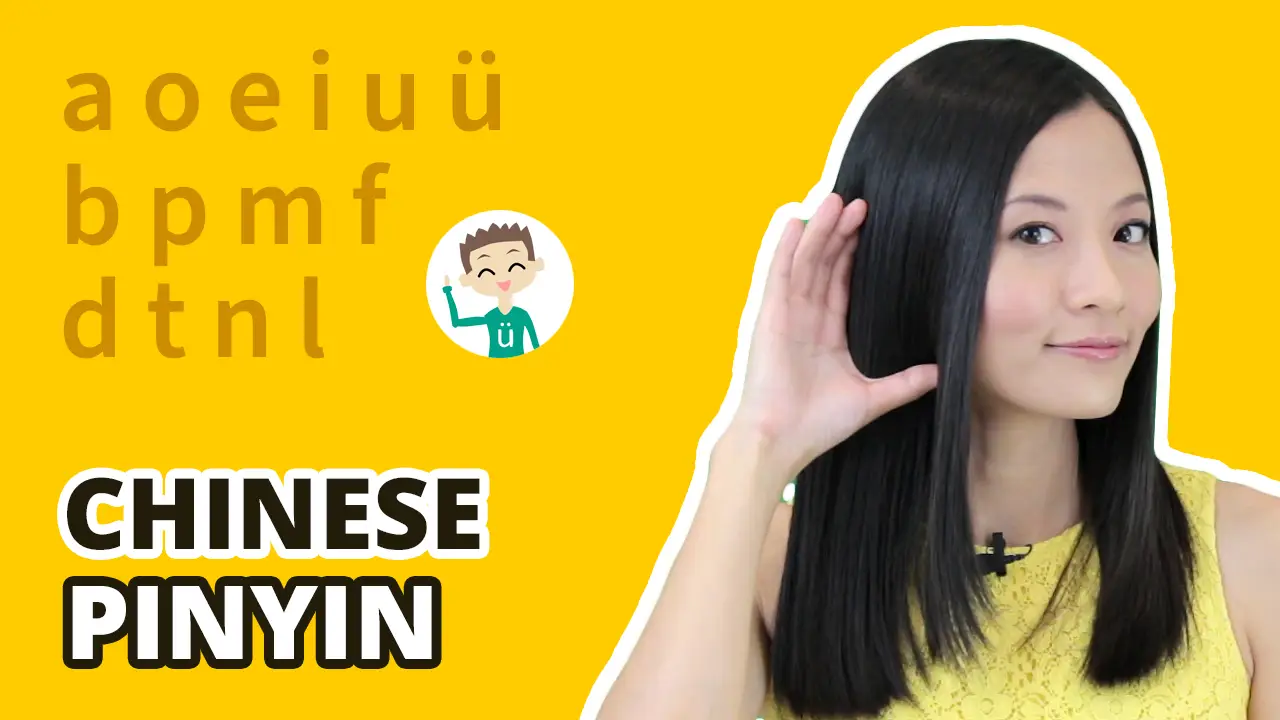Pinyin Lesson 6 – Initials: z c s
Chinese Pinyin Initials: z c s
This group of Chinese Pinyin Initials has three consonants: z c s. This group might be one of the most difficult for non-native speakers to pronounce. But this doesn’t mean that it’s impossible to achieve perfect pronunciation on them. We just need some extra practice. So, let’s start now and learn with this video.
LESSON INFO
KEYWORDS
- Chinese Pinyin Initials
- z
- c
- s
LESSON NOTES
Chinese Pinyin Initials: z c s
Chines Initials z c s called Dental Sibilants. and to pronounce them you need to put the tip of your tongue against the back of your upper front teeth. Just slightly touching, but not pushing against. They usually compared against another Pinyin Initials: zh, ch, sh, r.
| z
|
c
|
s
|
|
| zh
|
ch
|
sh
|
r
|
19 Comments
Leave a Reply
You must be logged in to post a comment.

ابي اعلم الصينيين كيف يلعبون بلوت
These were difficult several weeks ago when I did them for the first time. However, coming back to them again, I found them much easier!
This is very helpful for extra help at school! Good luck to everyone learning! 🙂
Now it’s getting harder! I appreciate the explanation on how to pronounce these using tongue placement, etc. For me the “c” almost sounds like a “t” in English sometimes.
Hi! When pronouncing these initials, does the tongue stay behind the teeth continuously? I’m making very similar sounds, but I feel like I may not be positioning my mouth correctly.
Same question. It seems I have more success if I just tap my tongue behind my teeth. Is this correct?
In the Philippines, we speak American English. I am now quite struggling with the z. I am pronouncing za as dza. etc… Am I pronouncing it right? Please help me with some more techniques. I need to practice my tongue on this. Thanks a lot.
Hello, I can’t understand what Chuck is saying in 2:41. “So just naturally hold your tongue after you “usades” (is it you say it?), and let your voice out.” Please let me know…
He said “so just naturally hold your tongue after you say zi. Or that is what it sounds like to me.
I am struggling with the “C”sound, even though I hear the differences “ts”. It seems to make the “T” sound with the finals. Like Ca, Ce, & Cu ?
The way I heard it explained (from a different chinese channel) that it is pronounced like “pants” but remove the pan and so you just have the ts. For me, I was learning japanese once years ago and they have “tsu” so it is easier for me to just remove the u after the ts. But if that helps thinking of pants without the “pan”
In russian language there is a letter that has the same pronunciation Ц – Ci. And interesting thing is that in Kazakh language we have a specific letter vowel ы – that has the same pronunciation as ‘i’ in Chinese language. By the way, it was really awesome. Thanks a lot)
I found it difficult to differentiate se with si and other e with i
It seems to be a subtle difference. I think the difference is with ‘e’, the tongue is more pulled back in the mouth, with the tip of the tongue leaving the teeth after the ‘s’ sound is made. With ‘i’, the tongue stays in the front of the mouth after making the ‘s’ sound.
Hello. I am having a difficulty hearing the difference between xi and si. Any helpful hints or additional exercises?
Xi makes the “She” sound, while Si exists BUT is makes the “S” like sssss. You pronouce it without the ” i”.
It’s really hard for me to hear the c in the syllable cu the way it’s pronounced in other syllables. I can not hear the sibilant sound in cu; it sounds like Lili is saying tu. I hear the sibilant sound in the other c syllables. What am I missing? Thanks.
Wow, this was actually really difficult! Lili and Chuck, I’m not sure if you’re familiar with Korean pronunciation, but there is a consonant and vowel combination that looks like this: 차. It actually sounds really similar to the pinyin initial and final ca, which really made it harder for me. I could definitely tell there were some minute nuances in the pronunciation(at least I really hope so, or else I just wasted a lot of time!), and I really wanted to get it right. I think I spent close to 2 hours practicing on this video alone…
Sorry I haven’t studied Korean pronunciation thoroughly so I couldn’t provided a comparison between the Pinyin ca and the Korean sound. But don’t worry, as a Chinese beginner it is perfectly normal if you find certain syllables difficult.
It’s okay to drop it for right now and move on. You will have plenty of chances hearing that sound in the future in various different contexts and situations. Just pay extra attention whenever you hear them, and gradually you will be able to hear more details about it.